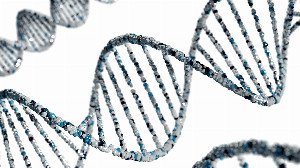Or. H. O. Boileau
Common Water
Introduction
Common water. Explore the profound importance of water, Earth's most abundant chemical compound. Despite its commonness, water is crucial for all life, fueling human physiology and enabling existence.
Abstract
There is quite a lot of water in the world, either moving or lying on its surface, or soaked a little way into it, or in the air above it. There is so much of it about that we generally find it rather uninteresting, and do not consider that, so far as we are concerned, it is the most important chemical compound (or perhaps mixture of chemical compounds) in the universe. Just to touch on the physiological side first of all. We live as human beings because our frames carry a multiplicity of muscles, the so-called " meat " of animals, those engines which are capable of carrying on work within the body, and of enabling the body to do work external to itself; even whilst you lie back with your eyes closed listening to the rain, even if you drop right off to sleep, a vast number of little engines are consuming fuel within your body and keeping you alive. No one of these engines can use anything but liquid fuel, and the liquid fuel is produced by mixing other chemicals, either solid or liquid, with water, and effecting some chemical changes with a loss of potential energy which you utilise; and so you live.
Review
The abstract for "Common Water" adopts a rather conversational and descriptive tone, beginning with a broad observation of water's omnipresence before narrowing its focus to its physiological importance for human life. The author highlights water as the "most important chemical compound" and elaborates on its indispensable role in the body's internal processes, particularly in facilitating the "liquid fuel" required by muscles. While the language is accessible and attempts to convey a sense of wonder about this seemingly mundane substance, it reads more as an essayistic introduction or a reflective piece than a concise summary of a scientific study. However, from a scholarly perspective, the abstract presents significant shortcomings. It primarily reiterates universally accepted facts regarding water's fundamental role in sustaining life without introducing any novel research questions, methodologies, empirical data, or specific findings. The description of physiological processes is highly generalized, relying on analogies like "engines" rather than precise scientific terminology or mechanisms. Crucially, the abstract lacks the structural elements expected in a scientific publication: a clear problem statement, an outline of the paper's scope, the methods employed, or the specific results and conclusions that would advance scientific understanding. Given the absence of a defined research agenda, original contribution, or rigorous scientific methodology, the abstract for "Common Water" falls substantially short of the standards typically required for a peer-reviewed academic journal. While the overarching theme of water's importance is undeniable, its presentation here is more suited for a general audience, an educational text, or a philosophical essay, rather than a publication intended to contribute new knowledge to a specific scientific discipline. Therefore, the work, as indicated by this abstract, would require significant re-conceptualization and the inclusion of substantial scientific content to be considered for journal publication.
Full Text
You need to be logged in to view the full text and Download file of this article - Common Water from Environment : a magazine of science .
Login to View Full Text And DownloadComments
You need to be logged in to post a comment.
Top Blogs by Rating
The Healing Power of "Ahhh": M...
By Sciaria
Beyond the Chart: The Nurse's...
By Sciaria
Beyond Silicon: How Living Mat...
By Sciaria
Favorite Blog
Your Dynamic DNA: The Adapting...
By Sciaria
Are You Just a Colony? The Int...
By Sciaria
The Invisible Hand of Defaults...
By Sciaria




